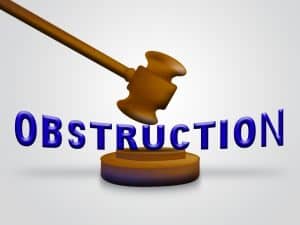

Declining requested breath or blood testing in a Virginia DUI case does not automatically mean that the DWI defendant will avoid blood alcohol content (BAC) evidence from being obtained. Very frequently where I practice as a Fairfax criminal attorney, police are obtaining search warrants to draw blood from DUI arrestees who refuse to submit to BAC testing.
Search warrants ordinarily do not require the warrants’ targets to avoid declining the search warrant, so long as the target stays out of the way of police as they execute the search warrant. For the execution of a blood search warrant, on the other hand, either the subject must physically cooperate with providing the blood or the police or medical personnel can apply physical force to obtain a blood sample.
Certainly the search warrant’s language can be examined for whether it mandates the defendant’s compliance with the search warrant — versus declining it — but that does not end the analysis.
The United States Supreme Court in 2016 indicated that states may criminalize declining to submit to a blood draw ordered by a search warrant. Birchfield v. North Dakota, 579 U.S. ___, 136 S. Ct. 2160 (2016):
“If, on the other hand, such warrantless searches comport with the Fourth Amendment, it follows that a State may criminalize the refusal to comply with a demand to submit to the required testing, just as a State may make it a crime for a person to obstruct the execution of a valid search warrant.”
Birchfield, 136 S. Ct. at 2172.
A Westlaw search reveals no Virginia caselaw — and few appellate decisions from other jurisdictions — on the applicability of Virginia’s obstruction of justice statute to DUI defendants declining blood draws pursuant to search warrants.
A Virginia criminal defendant could argue that declining blood search warrants by passive resistance to a blood draw does not qualify as obstruction of justice under the applicable obstruction statutory subsection, which provides in pertinent part:
“If any person without just cause knowingly obstructs a … law-enforcement officer… or fails or refuses without just cause to cease such obstruction when requested to do so by such … law-enforcement officer… he is guilty of a Class 1 misdemeanor.”
Such statutory language arguably does not apply to declining a blood search warrant by passive resistance, where police can forcibly obtain compliance with such a search warrant and when one considers that it is not obstruction of justice even to lie to a police officer whether one was the drive in a car accident. Ruckman v. Commonwealth of Virginia, 28 Va.App. 428 (1998).
Although in 1999 the Michigan Supreme Court found the evidence sufficient to convict for obstruction of justice where a blood search warrant was issued in a DUI case followed by the defendant’s verbally declining a blood draw, said appellate opinion was under a statute that specifically criminalized opposing the execution of a search warrant, which is not covered by Virginia’s obstruction of justice statute:
“The statute provides that ‘[a]ny person who shall knowingly and willfully obstruct, resist or oppose any [police officer] in serving, or attempting to serve or execute any process, rule or order made or issued by lawful authority’ is guilty of violating the statute.[16] The plain meaning of those words[17] and the factual record in this case are a perfect fit.”
When a defendant is prosecuted for obstruction of justice under such circumstances, some points to consider include whether the police made clear to the defendant that a search warrant to obtain his or her blood had been obtained, whether the police clearly demanded compliance with the blood search warrant, the contents and context of the defendant’s declining to submit to a blood test (running from saying “I do not want to provide blood” to “I will not provide blood” to “over my dead body”), and how the police reacted to the purported refusal to submit to blood testing by search warrant (for instance whether the police then repeated their demand to provide blood, explained that the search warrant mandated compliance therewith, or forced a blood draw without first providing the defendant a chance to reconsider declining to provide a blood sample).
Fairfax criminal lawyer Jonathan L. Katz pursues winning advocacy against felony, misdemeanor and DWI prosecutions. For a free confidential in-person consultation with Jon Katz about your pending criminal court case, please call his staff at 703-383-1100.